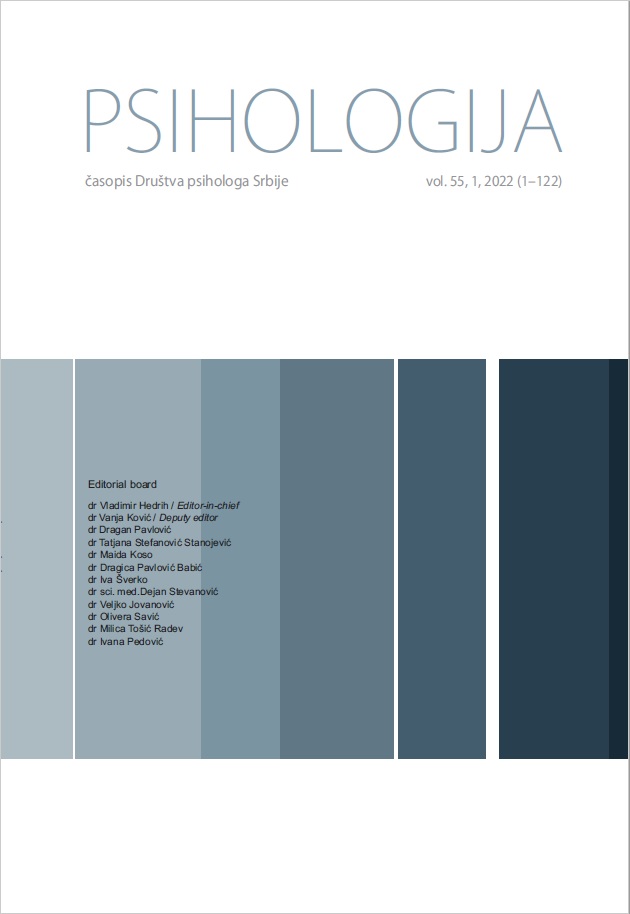Social anxiety and rumination in the context of the revised reinforcement sensitivity theory and the mediation model of social anxiety
Social anxiety and rumination in the context of the revised reinforcement sensitivity theory and the mediation model of social anxiety
Author(s): Kristina Ranđelović, Nikola ĆirovićSubject(s): Individual Psychology, Cognitive Psychology, Personality Psychology, Clinical psychology
Published by: Društvo psihologa Srbije
Keywords: social anxiety;ruminative thought style;reinforcement sensitivity theory;mediation model;
Summary/Abstract: The aim of this study was to examine the relationship between temperament, ruminative thought style and social anxiety using latent variable modeling. Before examining the integrated model that specifies the relations between the constructs, relevant measurement issues were examined. The study was conducted on a heterogeneous sample from the general population that included 1,029 participants (62.1% female) aged 19 to 79. The findings show that the Behavioural Inhibition System is the most important vulnerability factor for the development of social anxiety, and it has both a direct effect and an indirect one through the ruminative thought style. Also, Freeze has an additional contribution to the increased experience of social anxiety. The Behavioural Approach System has complex effects on social anxiety - with a direct protective effect, and indirectly - with a facilitation of the ruminative thought style. Thus, BAS can also act as a risk factor. The findings support the revised Reinforcement Sensitivity Theory and provide a basis for the extension of the Kimbrel’s Mediation Model of Social Anxiety
Journal: Psihologija
- Issue Year: 55/2022
- Issue No: 1
- Page Range: 1-24
- Page Count: 24
- Language: English

